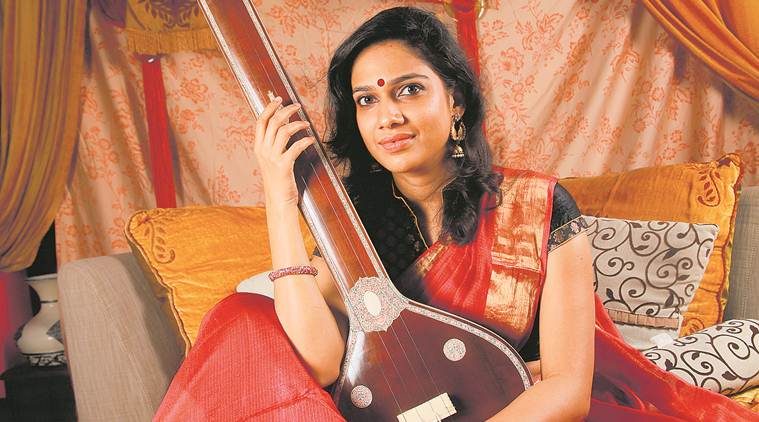Gayatri Asokan, who was in Delhi for Jashn-e-Rekhta, is among the first female ghazal singers from Kerala.

To her, music is quantum mechanics. Waves of sur. Notes and the gaps between them. Her friends are ragas Bageshwari, Shudh Sarang and Malkauns. She sings Mazha Kondu Mathram with as much thairaav as she does Mehdi Hassan’s Baat Karni Mujhe Mushkil with sincerity. “This is a singer to watch out for,” said jazzman Louis Banks at a concert last year. And veteran ghazal singers Pankaj Udhas and Talat Aziz are putting their money on Gayatri Asokan, who, at the recent Jashn-e-Rekhta in Delhi, presented songs from her debut album Ghazal Gaze, released at last year’s Khazana festival in Mumbai.
Carnatic was readily accessible to Asokan, 41, at home in Thrissur. Born to doctor parents, she learnt music from her grandmother. Seeing her parrot songs from the Telugu musical Sankarabharanam (1980) at 2, her mother took her to late Carnatic singer Nedumangad Sasidharan Nair. College was about chorus singing and Western pop. But once exposed to Hindustani classical, she would go learn from Alka Deo Marulkar in Pune, Pandit Vinayak Torvi in Bengaluru, and now, in Mumbai, to Pandit Ajay Pohankar to hone thumris. It was a “paradigm shift”, “vilambit khayal isn’t there in Carnatic music,” says Asokan, whose alaaps and bandish made Malayalam film composer Raveendran give her her first break: Deena Dayalo Rama (Arayannangalude Veedu, 2000), a duet with Yesudas. Composers Ilaiyaraaja and AR Rahman collaborated with her later (she’s sung in Tamil films, too).
“When I started playback singing, the queens were (KS) Chithra ji and (S) Janaki-amma (who had already retired), but there were no young voices,” says Asokan, the recipient of the 2003 Kerala State Film Award (Enthe Nee Kanna) and the 2011 Amrita Fefka Film Award (Kinavile), among others.
Up north, ghazal from Kerala was synonymous with Hariharan. “Kerala has a big following. They don’t understand Urdu, but they love listening to Mehdi Hassan and Ghulam Ali,” says Asokan, who has shared the stage with Hariharan on stage shows. Besides ghazals (whose nuances she also picked up from composer Taj Ahmad Khan, who would accompany Hassan on India gigs), Shubha Joshi, Shobha Gurtu’s disciple, also taught her Hindustani classical, and Meera and Kabir bhajans, which Asokan sung at temples (Guruvayur, Tirupati) and Chennai sabhas.



No comments:
Post a Comment